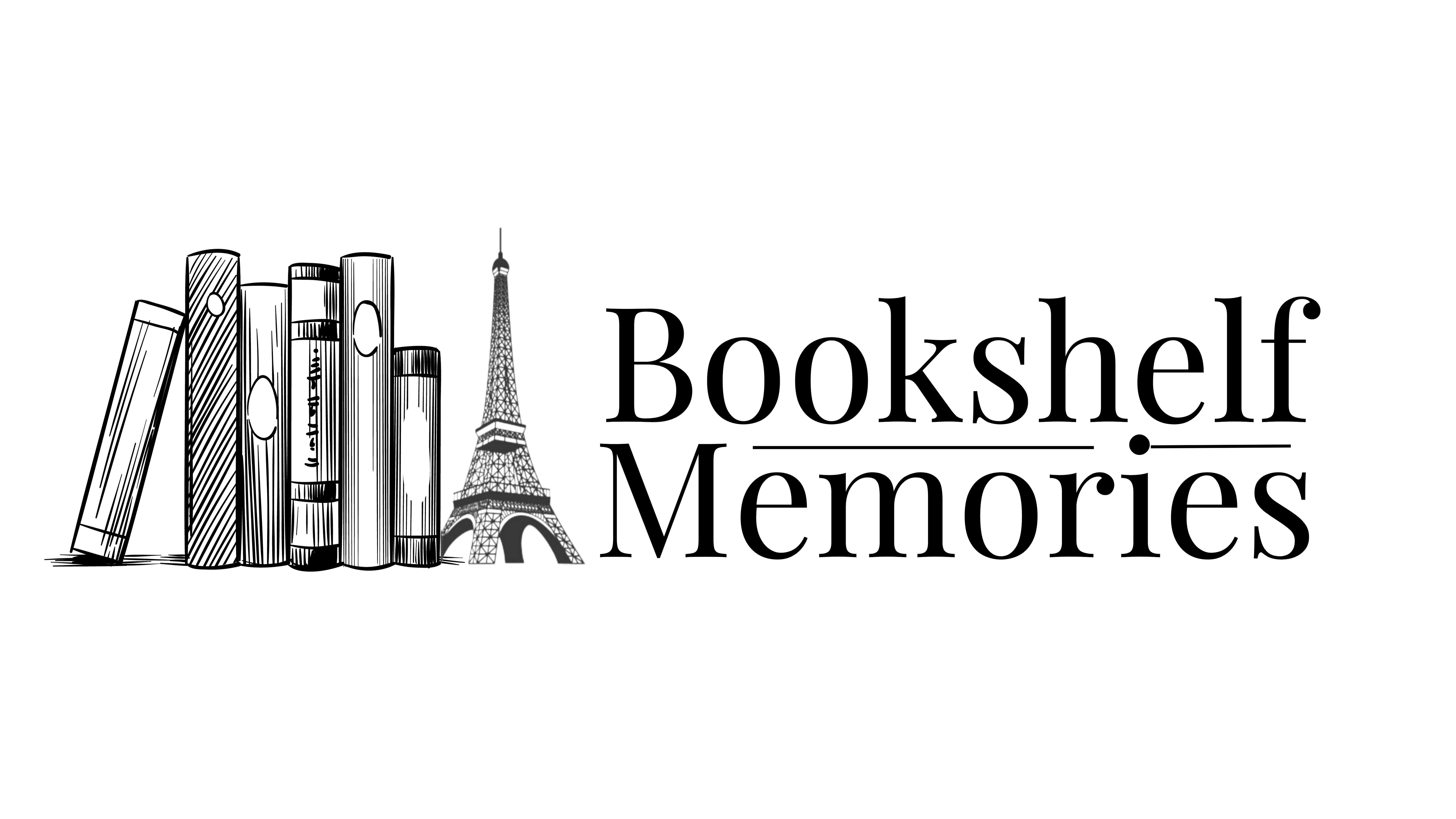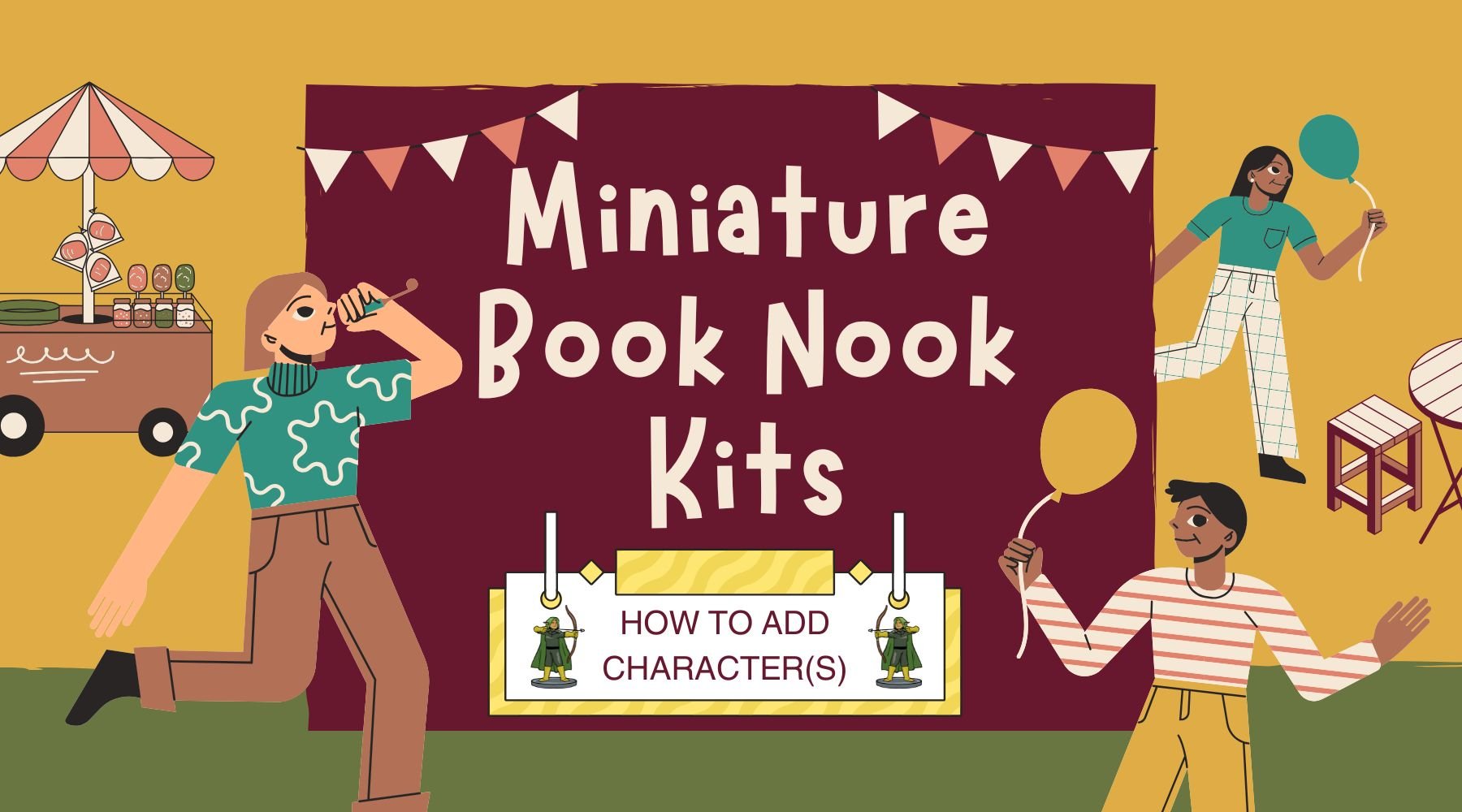Every story has multiple characters, so naturally, if you want your book nook to bring a story to life, you’d expect it to contain characters. Right? Very seldom do book nook kits include these though. When they do, more often than not, they’re a 2D cardboard or wood cutout, rather than a 3D miniature. The reason is partially to do with size. Naturally, given the small nature of book nook kits, there’s very little space for 3D miniatures.
Why Book Nook Kits Seldom Include Characters?
Aside from size, most book nook kits (including our own Tokyo Alley DIY book nook), are designed with an emphasis on the intricate features of buildings, and scenery, getting as much detail in as possible. The book nooks create the setting to help transport your imagination when you look at it. Within the confined space of a book nook kit, miniature figurines could overpopulate it, detracting from the beauty of the creation.
You can add miniatures to a kit though. The key to keeping things as realistic as possible is working with a scale. The vast majority of kits don’t use any particular scale, but given the height is the standard size of a paperback book, miniatures in the 1:12 and 1:24 scale are quite often suitably sized. It does depend on the design though.
What’s Meant By Scale?
In scale modeling, a scale is a ratio that’s representative of a scaled-down version of what the object would be like in real life. 1:12, for example, is representative of 1 inch being equal to 12 inches or a 1-foot object in real life. Therefore, a 5ft figurine at a 1:12 scale would be 5 inches in height. The standard size of bookshelf inserts is around 10” in height, give or take. So, a single character could easily take up half the size of the finished design. However, there are many different scales in miniature figurines.
A Guide to Scale Ratios and How to Find the Right Size to Customize Your Book Nook Kit
When you’re customizing a book nook without making your own miniature characters and accessories, there are speciality stores likely to have items you can use to kit out your design.
Different genres have different scale ratios. You can use the associated scales to filter your search to the types of items you want to include in your book nook.
Dollhouse and Architectural Modelling

In this category, you’ll find things like tables, chairs, bookshelves, staircases, dining sets, sofas, and the usual furnishings you’d find in a home or reading nook/library book nook kit. Sometimes, garden miniatures too.
Common scales in the dollhouse and architecture category are 1:12, 1:24, and 1:48.
Military and Gaming Scales

In this category, you’ll find things like military vehicles and diorama accessories suited to wargaming designs, including 3D resin miniatures for role-playing games (RPG) like Dungeons and Dragons.
Common scales in the military and gaming categories are 1:35, 1:72, and 1:56 (approx).
Automotive Model Scales

For street alley book nook kits, you may want to include bicycles, motorbikes, or cars parked by the side of the road.
Common scales in the automotive category are 1:18, 1:24, and 1:64. Bikes in the 1:64 scale range tend to be 1.25 inches so they don’t take up too much space in an assembled book nook.
Ship / Pirate Model Scales

Maritime scales tend to be 1:350 and 1:700.
Model Railway Scales

Speciality model railway stores have a platitude of miniatures that can work well in a book nook. The category to shop is “scenery” (unless you want to include a train and track in your design). Model railway props range from the wildlife you’d be likely to spot from the window seat on a train journey to street lighting, and even light-up LED Christmas trees.
- O Guage is 1:48 unless it's a UK supplier as British O Guage uses 1:43.5.
- HO is 1:87
- N scale is 1:16
- Z scale is 1:220
- The S scale is 1:64.
For book nook kit accessories, you’re more likely to find suitably sized figurines and decoration pieces by looking for S-scale props at model train speciality stores.
Miscellaneous Modelling Scales

Two scales that are used for miniatures that don’t fit exactly into a mainstream genre tend to be 1:32 and 1:144 scales. These sizes are typically used with fantasy-genre book nook accessories like goblins, elves, wizards/sorcerers, knights and mythical creatures.
How to Make Your Own Book Nook Accessories
Should you rather make your own, or be frustrated trying to find what you have in your mind, you can create it yourself. The advantage is uniqueness. Your book nook will be one-of-a-kind.
Tools you’ll need
- Pencil and paper
- Aluminum wire
- Polymer clay (two popular brands are Fimo and Sculpey)
- A set of small clay sculpting tools
- Fine detail paint brushes
The How-To
- Start with a sketch of the character, or miniature you’d like to create. Person, animal, alien, etc.
- Use the aluminum wire to make a wire armature, which is essentially just the shape. It’s easier to sculp with clay when the shape is made with wire, and that gets used for the clay to cling to.
- Use the clay sculpting tools to add defining characteristics like the eyes, the mouth, hairstyles, etc. Any accessories like backpacks, torches, swords can be made separately and glued together.
- Complete the miniature with a coating of paint.
Sometimes, designs look great, until you're finished and you feel it's missing something. Rather than feel disappointed, put your spin on it. An enchanted forest book nook kit could look like a simple woodlands trail... Add in a couple of soldiers on horseback with swords drawn, it's a whole different story!




Share:
Best Book Nook Kit Accessories for Stress-Free Assembly
Shipping Update: Tokyo Alley is Almost ready to ship